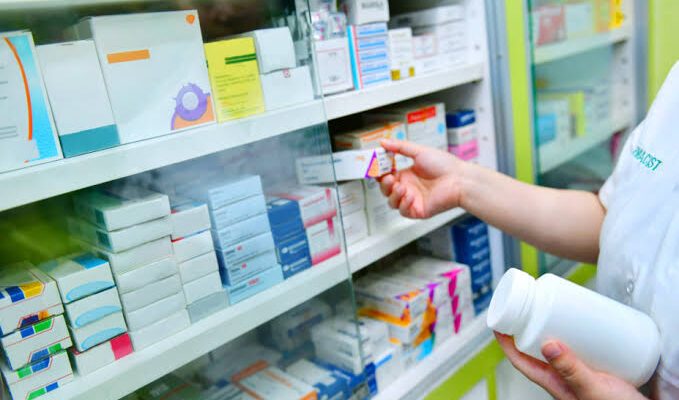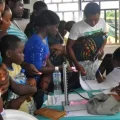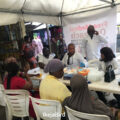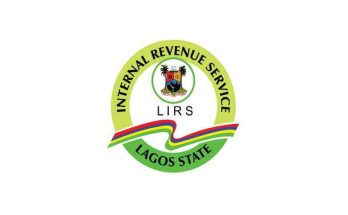By Chiagoziem Abosi
Mother of three Mrs. Nkechi Okechukwu told her story with sadness in her voice. “I have to choose between buying my blood pressure medication and feeding my children,” she said. “Sometimes, I just skip my medication because I can’t afford it.”

The Challenge of Paying for Prescription Drugs
Many agree with this sentiment. The soaring cost of medications has put individuals like Mrs. Okechukwu in a vulnerable situation. The Pharmaceutical Society of Nigeria (PSN) reported that just in the past year, the cost of prescription drugs has gone up by more than 40%. The skyrocketing cost of medication is a serious obstacle to healthcare in Lagos State’s vibrant city of Ikeja. Many locals now consider life-saving medications to be luxuries. For individuals and families, this crisis is a daily struggle rather than just a statistic.
IkejaBird talked with the locals and pharmacy owners about their experiences in order to fully comprehend the extent of the problem.
Perspectives from Drug Relators
Ikeja’s pharmacists are well aware of the circumstances and frequently find themselves in a difficult predicament. Pharmacist Mr. Adewale Bakare, who runs a neighborhood pharmacy, explained, “We encounter patients who cannot afford their drugs every day. It’s devastating. We make an effort to lower our markup costs, but we are only able to do so much action before we lose money.”
Notwithstanding these difficulties, Mr. Bakare was appreciative of some pharmaceutical suppliers. “I’m grateful to a few pharmaceutical companies that reduce the cost price of their products so that we can sell at a really affordable rate to customers,” he stated.

Real Life Struggles
Diabetes patient Mrs. Bisi Adewale talked about her upsetting experience. “Insulin costs have almost doubled. I have to visit three or four different pharmacies in order to locate it. Not only is it costly, but it’s also difficult to locate,” she lamented.
Patients who depend on these vital drugs for survival suffer much more as a result of their lack of availability. Mr. Chinedu Okeke, an asthmatic, also talked about his experience. “Inhalers are getting harder to find. When I visit the pharmacy, they occasionally inform me that the item is out of stock. Without an inhaler, an asthma episode can be lethal, which makes it horrifying.”
The Problems with Dependency on Imports
Since 90% of the goods sold in Nigeria are imported, the exorbitant expense of pharmaceuticals is made worse. “Imported drugs are expensive because of the high exchange rate,” Mr. Bakare clarified. Since most of the tools and supplies used by Nigeria’s small manufacturing sector are imported, they must contend with insecurity, high taxes, and import penalties. They pay for them with their noses.”
Impact on Medical Care
These exorbitant prescription expenses have terrible repercussions. Patients’ health deteriorates as a result of being forced to miss doses or stop taking their medication completely. Dr. Samuel Ajayi, a general practitioner, noted, “We find increased difficulties and hospital admissions when people do not take their drugs as advised. This adds to the already excessive workload on our healthcare system.”
Coping Strategies and Social Support
In spite of the difficulties, the community is managing. Patients can now pay for their prescription drugs in installments at some pharmacies thanks to the introduction of payment plans. Mr. Bakare remarked, “It’s not perfect, but it helps.” “We want to make sure our patients get the treatment they need, even if it takes longer to pay for it.”
Nonprofits and community health programs are also taking action. The most vulnerable populations receive subsidized medications and health education from organizations like Health Empowerment Initiative. Another pharmacist, Mrs. Funmi Adeyemi, said, “We work with NGOs to get medications at lower costs.” Even though it’s a tiny step, every little bit counts.”
Looking for Remedies
These coping strategies barely offer respite for the at-risk populace. Systemic fixes are required to deal with the underlying cause of the issue. Government intervention to control drug prices and boost healthcare funding is imperative.
“The government needs to prioritize the health of its people and give assistance to manufacturers in Nigeria,” said Mr. Bakare. “We should produce drugs locally, reduce our dependency on imports and bring down costs.”
This is a call to action for government, legislators, medical professionals, and other stakeholders to collaborate in order to guarantee that no one is forced to choose between their livelihood and their health.








